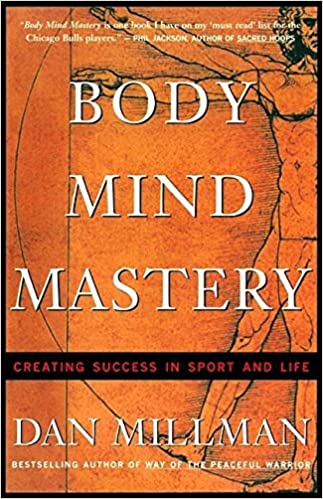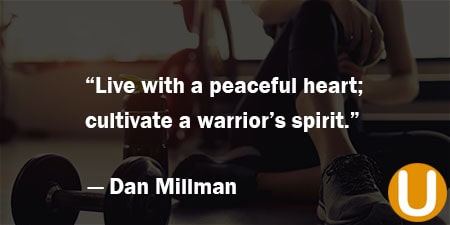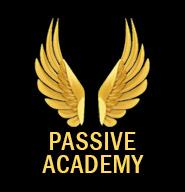Body Mind Mastery Summary
- Book by Dan Millman
The Book in 1 Sentences
Body Mind Mastery: Creating Success in Sport and Life
“Whether you are a world-class competitor, weekend athlete, or fitness enthusiast, this book will help you overcome self-created hurdles and reawaken the natural athlete—the body mind master—inside you.
Body Mind Mastery provides a clear map to a less stressful, more meaningful approach to practicing sport and life. It’s not about dedicating your life to your training but dedicating your training to your life.” ~ Dan Millman
5 BIG Ideas
1. Appreciate the failure and use it.
2. Focus + Consistency are the keys to success.
3. Show yourself the same kindness and patience you might show a young child and be your own best friend.
4. “When you feel like you’re going nowhere or even slipping backward, you may actually be backing up to get a running start.”
5. Baby steps + Consistency + Time = New Habit.
Body Mind Mastery Summary
Dan says: “You are a dynamic whole greater than the sum of your parts. By integrating your body, mind, and emotions through training, you reshape your life.”
If you don’t have the right mindset before training -and generally before doing anything in your life- the chances are that you’re not going to get what you want…
And it’s not just about sports, and it’s not just for athletes. This book is packed with wisdom that can change everyone’s life. Let’s dive right into some big ideas.
1. How to Get More Vigor and Vitality
“Remember that vigor and vitality is a matter of activity, not necessarily formal exercise. I’m always amazed to see cars driving around and around, looking for the closest space to the health club so they can get on a treadmill and walk three miles!
Park the car at the farthest point from the store. Use the stairs instead of the escalator or elevator. Carry your groceries, garden, and do other activities that keep you moving. You will add more years to your life and more life to your years.”
That’s ridiculous! I remember doing this before… 😀
And the solution is fairly simple, just keep moving and use your power in your ordinary daily stuff!
Easy.. Isn’t it?!
2. The Fear of Failure
“Ultimately, fear of failure generates a vicious circle that creates what is most feared. To break this cycle, you need to make peace with failure. It isn’t enough to merely tolerate it; you need to appreciate the failure and use it…
Body mind masters have made peace with failure, treating it like an old friend playing a practical joke. The greatest inventors, artists, and athletes have all failed many times. Babe Ruth was the home run king of his time, but also the strikeout king.”
Michael Jordan, who is one of the greatest athletes embraces failure, he says: “I’ve missed more than nine thousand shots in my career. I’ve lost almost 300 games. 26 times I’ve been trusted to take the winning shot and missed. I’ve failed over and over again in my life. And that is why I succeed.” (That’s from a Nike commercial.)
That’s how you should deal with failure… It’s an essential step to success! It’s OK to fail once, twice or even hundreds of times. Your success at the end is guaranteed! Consistency is the key here…
And I want you to know that fear of failure affects your body and performance: “Fear of failure produces tension; tension constricts the blood flow and slows the reflexes, which produces shallow breathing; shallow breathing results in the contraction of opposing muscle groups, which reduces coordination. Ultimately, fear of failure generates a vicious circle that creates what is most feared.”
Got it?!
3. Babies’ Consistency!
“If babies held the same tendency toward self-criticism as adults, they might never learn to walk or talk. Can you imagine infants stomping, ‘Aarggh! Screwed up again!’ Fortunately, babies are free of self-criticism. They just keep practicing.”
Dan also says: “So be gentle with yourself; show yourself the same kindness and patience you might show a young child—the child you once were.
If you won’t be your own friend, who will be? If, when playing an opponent, you are also opposing yourself, you will be outnumbered… You probably would find it cruel and unnecessary to say to someone, ‘You are really stupid; you keep making the same mistakes; you should give up; you’ll never be any good!’ Yet we think it’s okay to say the same things to ourselves.”
Failure is an attempt to success…
Children don’t know what failure is! They just keep doing the thing till they master it without even knowing… Be a child again… Be your own best friend, take it easy on yourself… That will make a HUGE difference… 😊
4. The Moment of Truth
“Freedom from mental distraction equals power. Olympic champion weightlifters not only have powerful bodies; they have powerful minds.
The same quality of attention frees us, in the moment of truth, from any thought of self-concept, criticism, or fear. Body mind masters eventually come to the realization that this and every moment, on or off the field, is the moment of truth.”
Each moment is “the moment of truth”. That means try your best to be present in each moment, in other words don’t live the “zombie lifestyle”!
Stop being distracted by these thousand thoughts of criticism, or fear… Go for it… focus… and keep moving…
Are you free from mental distraction throughout your day?
5. The Pure Attention
“Take your keys, a piece of fruit, or any handy object, and go outside. Throw the object up into the air. Staying relaxed and easy, catch it. Be sure to catch it. Then come back inside, and continue reading this exercise.
Now consider the moment the object was in the air. At that moment you weren’t thinking of what you’d have for dinner or what you did yesterday. You weren’t thinking of anything else, either. You may have been attending to thoughts before you threw it or after you caught it, but during the throw, you were pure attention, reaching out, waiting for the object’s descent.
In that same moment your emotions were open, and your body was alert and vitalized—a moment of satori.”
As Dan describes it: “Satori is a word from the Japanese Zen tradition that points to a ‘sudden awakening’ or ‘insight into our fundamental nature.’”
A powerful exercise… Try it out…
This kind of awareness and presence is all we want to achieve more of what we want… isn’t it?!

GET Blinkist 7 Days FREE Trial
3000+ Book Summaries
(Audio and Text)
6. Backing up to Get a Running Start
“Now that you have a better understanding of the mental mechanisms that influence your performance, you’ll realize that although we all find ourselves in slumps occasionally, we don’t need to get stuck in them. And when you feel like you’re going nowhere or even slipping backward, you may actually be backing up to get a running start.”
Don’t get stuck… That reminds me of a great idea in Big Mind Big Heart book… Don’t be like “Maserati Stuck in First Gear! ”..
Genpo Roshi says: “Being able to shift perspectives is like having a freely functioning vehicle. If a car is stuck in any gear, what you’ve got is a dysfunctional car. “
This is a FACT. All of us have slumps on occasion. Shift your perspective and see how normal that is, you don’t need to suffer the slumps.
And keep in mind what Dan says: “When you feel like you’re going nowhere or even slipping backward, you may actually be backing up to get a running start.”
That actually happened to me many times. When I think I’m losing something, something else -even better- magically appears!
Reflect on that… and think… How can you apply this to your life?
7. Emotional Talent
“Body mind masters do not deny or repress their feelings but learn to stay physically relaxed even under stressful situations. Even when feeling angry, fearful, and sorrowful, breathe evenly and fully. Keep your body relaxed.
You have much more control over your behavior than you do over your thoughts or emotions so paradoxically the best way to master your emotions is to let them be, stay relaxed, and focus on constructive action.
So, accept your emotions as natural to you in the moment, without trying to fix them. Know your purpose or goal—not someone else’s. And, do whatever you need to reach that goal, whether or not your emotions or moods help or hinder you.”
Dan talks about “Emotional Talent” and tells us the importance of mastering our relationship to our emotions.
He says that: “Motivation, like all states, comes and goes, rises and falls. I certainly didn’t feel motivated all the time during my gymnastics career. But I trained six days a week, for more than four hours a day, for years, by keeping my eye on the goal. Although motivation comes and goes, you can always rely on your will.”
That’s true… UPS and downs happens to all of us… and the key is to keep you eyes on the goal and stay relaxed to be able to continue practicing whatever you are doing…
Dan also says: “Life demands much of us, on and off the playing field. Emotional talent is the capacity to stimulate and draw upon our natural fountain of energy—to learn to blow into our own sails. We develop emotional talent not by relying on motivation all the time but by applying our will no matter how we feel.”
Think about that… What are you doing when you’re not motivated? Do you quit? Or do you try harder to keep moving?
8. The Law of Accommodation
“Your body is malleable; you can sculpt it over time with daily habits of diet and exercise. The law of accommodation reminds us that the body may change slowly, but it will change.”
Think about that… Do you prefer consistency or intensity?
It’s much better to show up at the gym regularly for a basic workout than go off for a couple hours every other week.
It’s a general rule, not just for training… It’s much better to do something for a little bit every day than a lot once in a while. It’s better to meditate for a few minutes a day than for an hour once a week. It’s better to read 2 pages a day than a whole book in one day every now and then… Got it?!
Baby steps always win over time…
9. Building New Habits
“This initiatory period of change may last from one to six weeks, or even longer. Unless the desire to change remains strong, body and mind tend to return to old, familiar patterns.
It takes time—from three to six months—for old habits to become obsolete. By the end of that time, you’ll have adapted to a new pattern. In a sense, you’ll have found a new way of life.”
Baby steps + Consistency + Time = New Habit.
Dan Millman says: “When climbing a mountain, define each step in the right direction as success. We learn the alphabet before we write words; it works the same in sport and life. Many small successes add up.”
So, how to building a new habit?
1. Have a crystal-clear goal.
2. Define your steps to reach this goal.
3. Make a smaller easily achievable versions of these steps (the baby steps).
4. Take these baby steps one by one and be consistent.
5. Celebrate every little success, so you become more motivated.
Be present, focus, keep your attention on your goal… and don’t forget to have fun 😊
10. Masters Shine Everywhere
“Masters of one art have mastered all because they have mastered themselves. With dominion over both mind and muscle, they demonstrate power, serenity, and spirit.
They not only have talent for their sport, they have an expanded capacity for life. The experts shine in the competitive arena; the masters shine everywhere.”
So, be a master of what you’re doing, shine everywhere and inspire others to be the best versions of themselves as you did… 😊
Bonus: My Favorite Motivational Song
This song literally changed my life someday! I hope you enjoy it too...
That was my Body Mind Mastery summary, a very quick look at this great book. If you haven’t read it yet and you’re interested in it, get a copy. There is a HUGE amount of wisdom and life-changing exercises in this book, and we’ve only touched on a tiny bit of it.
Buy The Book: Body Mind Mastery by Dan Millman

GET Blinkist 7 Days FREE Trial
3000+ Book Summaries
(Audio and Text)






